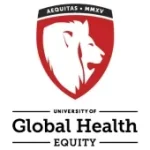Cordaid is an internationally operating value-based emergency relief and development organisation, working in and on fragility. We stand with those who are hit hardest by poverty and conflict. We support them in their struggle to move beyond survival and to fully participate in equitable and resilient societies.
Terms of Reference – Training Youth to Provide Equipment Maintenance Services in Coffee, Tea, and Horticulture Value Chains
1. Background
The Promoting Smallholder Agro-Export Competitiveness (PSAC) Project is a key initiative funded by the International Fund for Agricultural Development (IFAD), with co-financing from the Government of Rwanda, the Government of Spain, CORDAID, and Heifer International. The project, implemented by the Ministry of Agriculture and Animal Resources (MINAGRI) and led by the National Agriculture Export Board (NAEB), aims to enhance the income and livelihoods of rural communities through inclusive and sustainable agro-export value chains.
The PSAC Project primarily supports smallholder farmers by increasing their participation in export-oriented value chains such as coffee, tea, and horticulture. The project promotes climate-resilient production, facilitates market access, and addresses cross-cutting issues such as gender equality, youth employment, and climate adaptation.
The lack of access to reliable maintenance services is a significant barrier for farmers in the coffee, tea, and horticulture value chains, hindering their ability to invest in agricultural equipment. The fear of losing their investment due to equipment breakdowns or dysfunctions discourages farmers from purchasing machinery. This challenge is common across many agricultural sectors, as equipment often malfunctions before its expected lifespan. This issue also deters financial institutions from financing agricultural equipment, as the risk of equipment failure before its due time—coupled with the lack of maintenance services—could lead to loan defaults. Additionally, the inability to resell the equipment further exacerbates the problem.
This barrier limits the adoption of cost- and time-effective mechanization, which in turn increases operational costs, reduces productivity, and leaves farmers more vulnerable to the impacts of climate change. To address this, CORDAID, through the PSAC project, is working to provide affordable agri-equipment services. This initiative aims to promote investment in agricultural mechanization and create employment opportunities in the agriculture sector. By empowering youth to become service providers in agri-equipment maintenance, including repairing and maintaining machinery for farmers’ cooperatives in the PSAC-targeted districts, the project helps ensure that farmers can access the support they need to improve their productivity and resilience
2. Objectives
2.1 General Objective
To equip youth with technical skills in equipment maintenance, ensuring cooperatives and farmers can access reliable and affordable services while fostering youth employment and entrepreneurship.
2.2 Specific Objectives
- Identify and Train 140 youth (10 per district) to provide maintenance services across the targeted value chains.
- Develop a sustainable, fee-based service model to ensure financial viability and long-term impact.
3. Justification for the Training
This training initiative is essential to enhancing productivity, reducing costs, and promoting sustainable agricultural practices. The key benefits include:
- Capacity Building: Training for 140 fee based youth to become certified technical service providers for cooperatives.
- Cost Reduction: Reducing reliance on expensive external technicians by creating in-house expertise.
- Improved Equipment Efficiency: Extending the lifespan and efficiency of farm tools, including pruning shears, irrigation motor pumps , weighing scales, and solar systems.
- Sustainability: Encouraging environmentally friendly practices such as effective pesticide use and improved drainage in tea and coffee farms.
- Stronger Cooperatives: Establishing local maintenance support systems within cooperatives.
- Youth Empowerment: Strengthening youth engagement in agricultural value chains through employment and entrepreneurship.
- Promoting access to finance through asset leasing
4. Scope of Work
The selected service provider will execute the training program through the following tasks:
4.1 Assess the existing technical capacity among the youth in the area of equipment maintenance (mechanization)
4.2 Training Development
- Design a comprehensive curriculum covering basic mechanics, electrical diagnostics, and preventive maintenance for agricultural tools.
- Develop and translate training materials into Kinyarwanda.
- Establish a training platform for progress tracking and feedback collection.
4.3 Training Implementation and Delivery
- Train 140 youth through practical workshops.
- Conduct hands-on sessions using real farm tools. During the training the trainer will bring all required tools for a training Includestraining Includes: Pruning saw, Pruning shears, Hand-held mechanical knapsack pesticide sprayers, Electronic Tea Weighing Scales, Water pipes, motors for irrigation
4.4 Development of a Fee-Based Services Model
- Engage existing service providers to assess pricing strategies and service demands.
- Develop a structured fee-based model for youth-led maintenance services.
4.5 Training Monitoring and Follow-up
- Conduct pre- and post-training surveys to measure knowledge retention.
- Monitor service delivery, engagement levels, and equipment performance improvements.
- Perform field demos to assess knowledge retention
5. Methodology
The training will be delivered through structured steps, including:
5.1 Training Curriculum
- Tool Inspection and Maintenance: Covering tools such as pruning shears, knapsack sprayers, e-weighing scales, motors, and solar systems.
- Troubleshooting Techniques: Common breakdowns and repair methods.
- Preventive Maintenance: Best practices for long-term equipment performance.
- Sustainable Practices: Pollution reduction and improved drainage systems.
- Business and Customer Service Skills: Training youth to operate as independent service providers.
- This is a simple illustration of what is required for the training however, the trainer is expected to come up with his own approach.
5.2 Training Structure
- Duration: Four days
Venues:
- Bugesera: Rwamagana, Bugesera, Rulindo and Musanze
- Karongi : Rutsiro, Rusizi, Nyamasheke, Nyabihu & Karongi
- Huye (Huye, Nyaruguru & Nyamagabe, Nyanza, Ruhango.
6. Expected Outcomes
- 140 youth trained as technical support providers.
- Reduced operational costs for farmers through in-house maintenance services.
- Extended lifespan of agricultural tools through proper usage and timely repairs.
Sustainable maintenance service model, ensuring continuity and employment for youth.
7. Main Tools and Issues Involved
The following table elaborates on the main existing tools and equipment used by cooperatives across the districts under PSAC and the major issues such tools often encounter.
|
Value Chain |
Tools Used |
Frequent Problems |
|
Coffee |
|
|
|
Tea |
|
|
|
Horticulture |
|
|
8. Implementation Schedule
|
SN |
Activity |
Timeline |
|
1 |
Development of Training Curriculum |
April 20, 2025 |
|
2 |
Training Workshops |
April 22-26, 2025 |
|
3 |
Deployment of Youth Trainees |
May 1, 2025 |
|
4 |
Monitoring & Evaluation Report |
May 25, 2025 |
9. Payment Modalities
Payments will be made in RWF, inclusive of VAT, as follows:
- 20% upon approval of the training design.
- 40% upon completion of the training curriculum and workshops.
- 40% upon approval of the final training report.
10. Qualifications & Experience Required
- Experience in tool maintenance and repair.
- Proven expertise in vocational training, especially training especially equipment repair and capacity building in agriculture.
- Strong monitoring and evaluation capabilities.
- Familiarity with the Rwandan agricultural sector.
- Legally authorized and certified to work in Rwanda.
- Fluency in English and Kinyarwanda.
11. Submission Guidelines
Interested applicants should submit:
- Technical Proposal: Approach and methodology.
- Financial Proposal: Detailed cost breakdown.
- Previous Project Experience: Examples of similar assignments.
- CVs of Key Team Members.
Submissions should be sent to:
For more details you can contact: jeandedieu.hakizimana@cordaid.org ,
- Deadline: April 12, 2025
12. Evaluation Criteria
- Technical Approach – 40%
- Relevant Experience & Qualifications – 30%
- Cost-Effectiveness – 20%
- Innovation & Value Addition – 10%
13. Confidentiality & Proprietary Rights
The service provider shall not disclose proprietary information without prior consent. All training materials developed will remain the property of CORDAID.
14. Rights of Withdrawal
CORDAID reserves the right to withdraw or cancel the assignment under defined circumstances.
Approved by:
Patrick BIRASA
Country Manager
Cordaid Rwanda
Attachment












